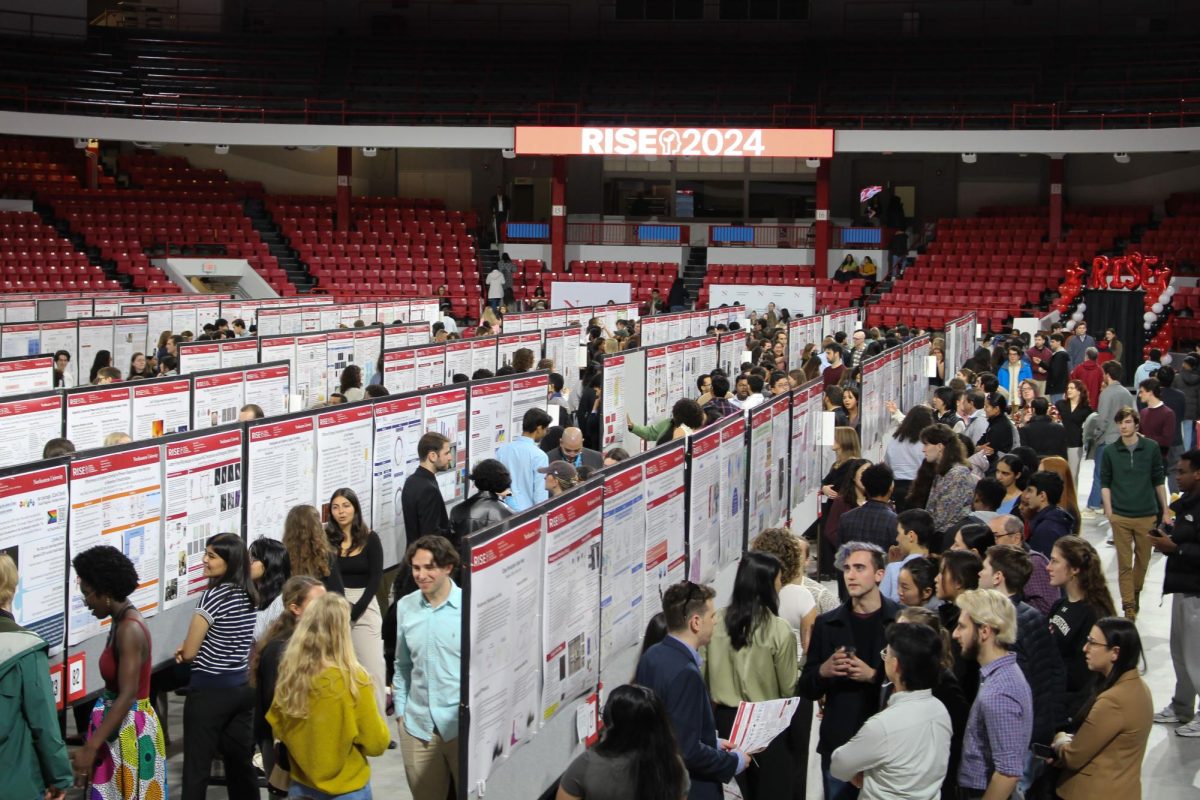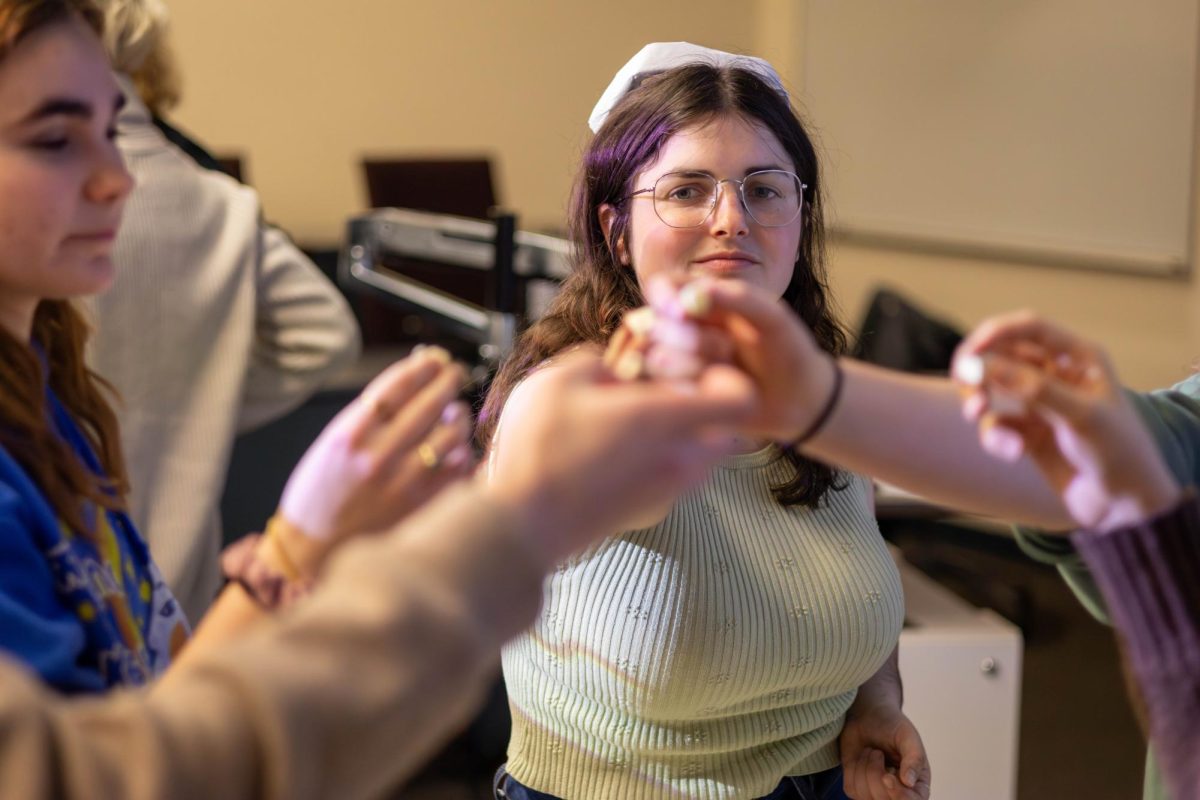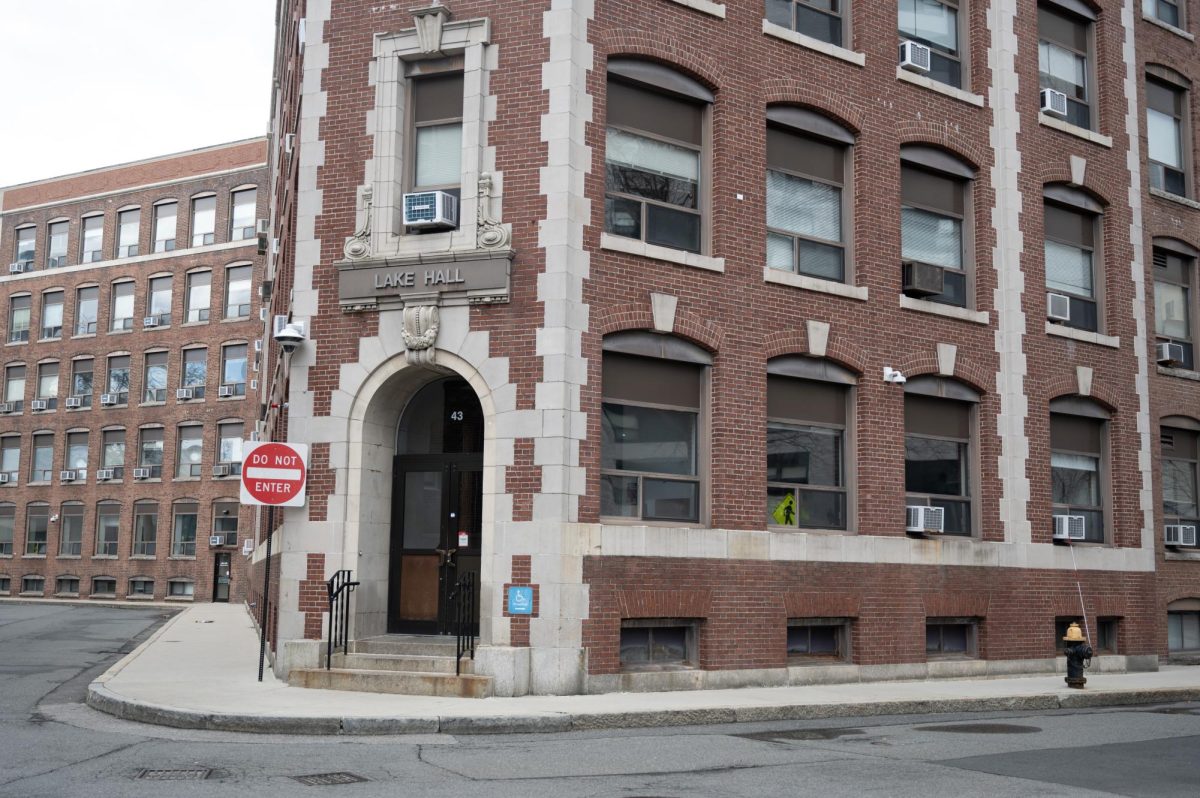By Jasmine Heyward, news correspondent
After a controversial Student Government Association (SGA) election season, Suchira Sharma and Paulina Ruiz won the election for Northeastern’s student body president and executive vice president (EVP), SGA announced Tuesday.
With the victory, their slate, officially titled Suchira + Paulina: “Believe in More” is the first elected at Northeastern to feature two women of color. Before this year, neither two students of color nor two women had been elected on the same slate at Northeastern.
“No amount of words will be able to capture how we’re feeling right now and we don’t take this trust that’s been placed into our hands lightly,” Sharma, a junior business administration major, said. “We’ve made history and we’re so happy about that, but we couldn’t have done it without each and every vote.”
Elections were originally planned to run from March 16 to March 23, but were extended four days following an error on the original ballot that incorrectly displayed a referendum question for the first 14 hours of voting. On March 23, SGA decided to invalidate votes cast during that time – nearly 1,500 – and required those students to cast new votes.
Sharma and Ruiz ran against Alex Bender and Jake Grondin of the ReNUal campaign. The election also included three referenda questions, two from the Husky Environmental Action Team (HEAT) and one from Northeastern Students Against Institutional Discrimination (SAID). All three questions passed.
This election saw controversy surrounding both campaigns, including multiple grievance hearings, the issuance of two demerits to the Suchira + Paulina campaign for what the SGA Elections Committee deemed negative campaigning and the lack of a Title IX policy in ReNUal’s platform.
Ruiz said that while the election proved to be unusually challenging, the campus-wide discussion about it was beneficial to the student body, especially since it engaged students who have not interacted with SGA before.
“Everyone had something they cared about,” said Ruiz, a sophomore psychology major. “We are all kind of united by this common passion which is advocating on behalf of one another.”
Sharma and Ruiz will officially enter the roles of president and EVP in May, but said they will begin addressing their campaign promises immediately, in their current roles as EVP and vice president of student services.
Ruiz is looking to address many of their campaign promises over the summer, because the Student Services Committee often pilots new programs when there are fewer students on campus.
She said she will continue creating a solidified timeline for the reclassification of on-campus housing and pushing for a student experience manager that would overlook all cases at University and Health Counseling Services (UHCS).
During her term as EVP, Sharma has advocated to administration for the reduction or subsidy of homework keys and said she will continue to do so in hopes of creating a plan before professors finalize syllabi for the fall semester.
For all these changes, Sharma and Ruiz believe that student engagement and voice is important, and want to continue the momentum from the election.
“We’re at this point where we have students who are tapped in and engaged to what their student government can do and how they can hold their student government accountable,” Sharma said.
While Bender and Grondin were not elected, they said they intend to continue advocating for the student body.
This includes three of their biggest platform pieces: Making UHCS work better for all students, calling for changes to housing processes that improve student experience and updating Northeastern’s technical infrastructure including the myNEU portal, NU Careers, and Wi-Fi reliability.
“I will continue to be an engaged student working for changes that improve our lives at Northeastern, and the only way to do that is through – with support of other students,” Bender said. “I would love students to reach out with any ideas so we can just talk about ways to do this, even if it’s outside SGA.”
The referenda questions that passed, were HEAT’s proposed ban of the sale of single-use plastic water bottles at on-campus locations, HEAT’s call to expand the use of renewable energy sources on campus and SAID’s referendum demanding that residents of surrounding neighborhoods have final decision-making power regarding new Northeastern developments.
Now that both of their proposals have passed, HEAT members are evaluating ways to implement them.
The water bottle ban will start with conversations between SGA, HEAT and Dining Services.
Together, the groups hope to identify the current usage plans and where reusable water bottles can be offered instead, said HEAT President Max Wagner, a sophomore finance major.
The process is expected to be complicated, given the many different contracts that operate food service establishments on campus.
For stores like Wollaston’s Market, which operates outside of the dining contract with Chartwells, the food-service organization that staffs and operates Northeastern dining halls, rules and regulations are unpredictable.
“We are definitely looking at extending this to Wollaston’s,” Wagner said. “It’s a bit more difficult because they’re a business that serves more of the community.”
Wagner is looking forward to speaking with Wollaston’s, however, because it maintains a positive relationship with Northeastern’s administration and has been responsive to sustainability initiatives in the past.
HEAT is also working on its renewable energy referendum with the Renewable Energy Initiatives Board and the Northeastern Environmental Law Society, discussing options for wind and solar installations on campus and how subsidies could make the changes more affordable for the university.
The implementation of SAID’s referendum will vary depending on feedback from the administration, but members are focused on providing the community with a voice.
“We will bring this to the table in good faith, and we are going to try to have productive conversations with [administration] however we can,” said Joe Taché, member of SAID’s anti-gentrification campaign and a junior entrepreneurship major. “We also feel that it’s really important that there’s real institutionalized power for community stakeholders.”
SAID’s idea of “final decision-making power” would have given veto power to community members, but Taché said they are willing to implement the question differently if administration or community members make an alternative suggestions.
SAID drafted the question in collaboration with multiple community groups, including Reclaim Roxbury, and members said they hope to continue to involve community stakeholders in the process.
With a historic SGA leadership slate and three passed referenda, the next academic year will most likely bring significant changes, an exciting prospect for the newly elected leadership.
“We’re so proud and we’re so grateful, but at the end of the day, we didn’t do this for us,” Ruiz said. “And we’re so excited to advocate on behalf of the students that voted for us, and even the ones who didn’t. Tell us what we can do next year to make things better.”














